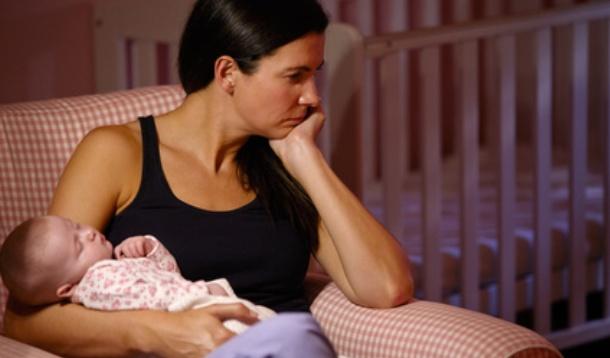
It's time to talk about something that makes a lot of people uncomfortable: mental health.
You may have already heard that the U.S. Preventative Services Task Force (USPSTF) issued a recommendation recently that all adults in the U.S. should be screened for depression. Specifically, the guidelines say, pregnant women and postpartum women should be given extra attention where these screenings are concerned.
The recommendation was published in JAMA Psychiatry and it's already begun making waves -- not just in the U.S., but in Canada as well. The guidelines urge doctors to screen all pregnant and postpartum women because, according to data from the U.S. Centers for Disease Control and Prevention, anywhere from 8% to 19% of all pregnant and postpartum women experience postpartum depression.
Let's stop right there for a minute. Anywhere from 8% to 19%?!? That's a huge percentage difference. That's hundreds of thousands of women who might be experiencing depression while also suddenly being responsible for another tiny human. That's hundreds of thousands of women who definitely aren't getting the treatment they need.
Okay, yes, maybe the issue of depression is different in the U.S. than it is in Canada. After all, only two in five working Americans get health insurance through their employers. Many Americans don’t have health insurance at all. So yeah, it kind of makes sense that mental health has been put on the backburner in the U.S. When you can't even afford to pay for regular doctor's visits, going to therapy every week is literally a luxury.
Canadians tend to fare a little better, considering that the country has already implemented and accepted a policy of universal healthcare. But let's be real here: mental health is still a taboo topic in many countries, Canada included. It’s even more taboo for new mothers to talk about. The Toronto Star reports that many provinces screen for postpartum depression, but there still aren’t any national standards for what these screenings should look like.
As the Huffington Post explained, new mothers often don’t know what depressive symptoms look like; around 50% of all women diagnosed with postpartum depression have never experienced depression before. Even for medical professionals, it can be hard to figure out what these symptoms really look like. Many pregnant women and new mothers with postpartum depression don't display the same symptoms as, say, a 30-year-old man who has had depression for the past 15 years.
That is really valuable information, for sure. It’s important to realize that not every case of depression can be determined with a series of questions like "On a scale of one to 10, with 10 being happier than a seagull with a French fry, how happy do you feel today?"
The problem of complex symptoms is only the tip of the iceberg, though. The underlying problem is that people just aren't talking about depression. New mothers especially.
To be honest, I can't blame them. How do you explain to your partner why you’re crying every night even though you love your amazing little baby more than anything?
How do you tell your aunt that you're too exhausted to comfort your baby girl when she cries? That you just run into the bathroom and hide until your spouse diffuses the discomfort?
When your neighbor asks how much sleep you’ve been getting -- she’s noticing that those circles under your eyes are growing darker by the day -- how do you explain your insomnia without mentioning your depression?
You want so badly to be the perfect parent. Your baby is the center of your world. But for some reason, that world just keeps slowing down and getting a little greyer each day.
I feel particularly attached to this issue. It wasn’t until I began fighting my own depression that my mother told me about how she experienced postpartum depression after having my brother and me. At first I was confused and a little upset. Why hadn’t she told me? It wouldn’t have fixed anything, but at least the doctors would have paid more attention to my earliest depressive symptoms.
Slowly, I began to understand. No mother wants her babies to think that their mere existence caused her to become depressed. That is, of course, an enormous oversimplification of what postpartum depression is. But when you don’t understand mental illness, and when you don’t understand how to talk about it, then it’s not crazy to make that conclusion.
The important thing now is that we start talking about it. Depression is something that has existed, and will continue to exist, whether we like it or not. It is okay to seek treatment if you have postpartum depression. It is okay to talk about it. It is okay to be honest with your relatives, your friends, and yes, even your neighbor. If she feels awkward because you’ve started to answer her invasive questions honestly, well, maybe she’ll finally stop concerning herself with your life and instead concern herself with the life of her rosebushes. They look so dead that they probably came back to life just to die again. And I don’t feel bad about saying that, so don’t you dare feel bad about laughing at it because you know it’s true.
It is okay to talk about postpartum depression. We’re listening. We want to hear your story. And I can promise you that your baby will only love you more when she understands what you went through just for her.
![]() RELATED: So Who Gets Postpartum Depression?
RELATED: So Who Gets Postpartum Depression?